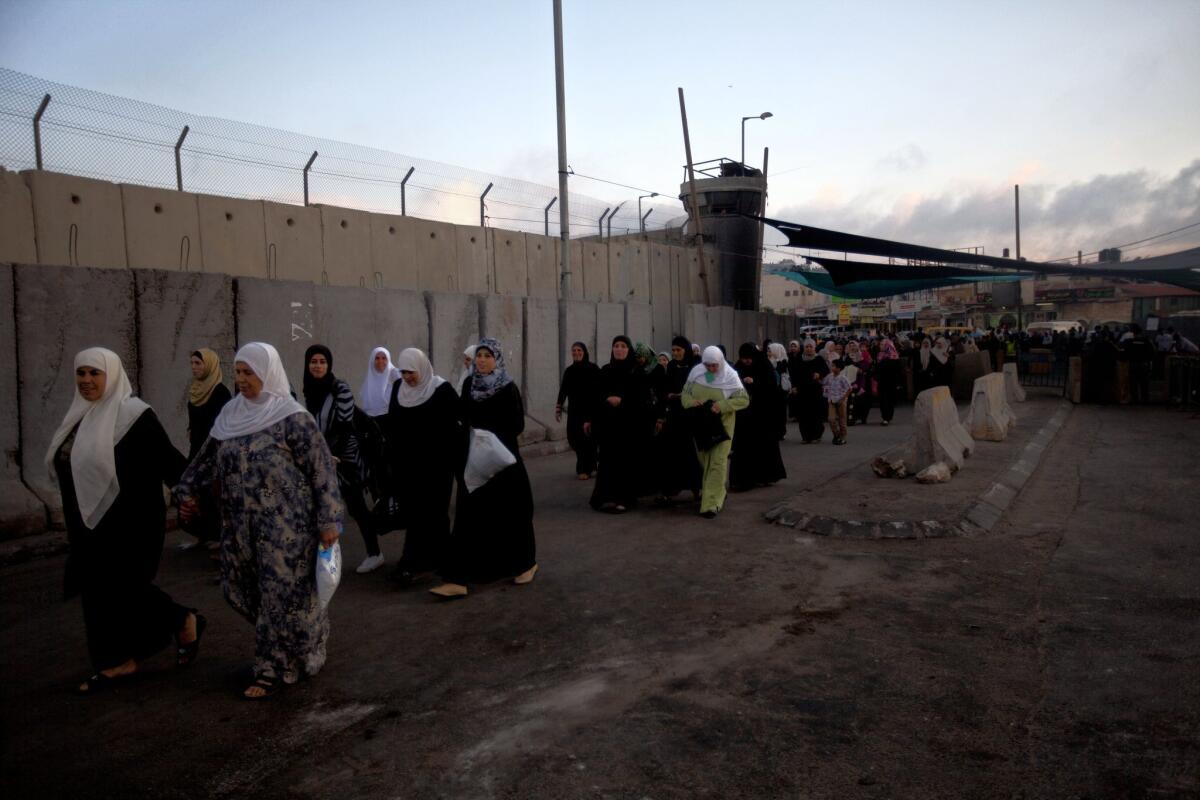Most Israelis oppose peace deal with land swaps, poll finds

JERUSALEM -- In a worrisome sign for U.S.-brokered Mideast peace talks, a poll released Tuesday found that more than half of Jewish Israelis would oppose a peace deal based on terms that have long been seen as the foundation of any resolution, including mutually agreeable land swaps that would allow Israel to keep its major settlements.
The results underscore the political shift to the right of Jewish Israelis as well as a growing intransigence when it comes to making land concessions for peace, pollsters said.
According to the latest Peace Index, conducted by the Israel Democracy Institute and Tel Aviv University, 63% of Jewish Israeli respondents said they would not support a permanent peace deal even if it included security arrangements for Israel, the creation of a demilitarized Palestinian state, international guarantees, a declaration by Palestinians that the conflict was over and withdrawal to the 1967 borders with territorial swaps.
When specifically told that Israel could keep its major West Bank settlement blocs as well as Maale Adumim and the city of Ariel, 58% said they were still opposed.
About half said they opposed a deal that would include the transfer of Arab neighborhoods of Jerusalem to Palestinian control with âspecial arrangementsâ for the Old City holy places.
More than 76% said they opposed allowing even a âsmall numberâ of Palestinian refugees to return to Israel, with financial compensation for the rest.
Such terms, often called the âClinton parametersâ after former President Clinton, have been the cornerstone of two-state negotiations between Israelis and Palestinians for more than a decade.
But although many polls find that a majority of Israelis voice support for the idea of a two-state solution, when queried in the latest poll about specifics, the support quickly evaporated.
The trend raises questions about the assumptions many in the U.S. and Israel have long held regarding Israelisâ readiness to accept a peace deal that includes even a partial evacuation of settlements.
Tamar Hermann, senior fellow at the Israel Democracy Institute, said the results point to âan increasing unwillingness to make concessions for peace,ââ which she attributed to the growth in right-leaning populations, including the ultra-Orthodox and West Bank settlers.
The poll also found that most Jewish Israelis said they believe any peace deal that involves evacuating settlements should be submitted to voters in a referendum for approval.
But 49% of Jewish Israelis said their fellow Arab citizens should not be permitted to vote in the referendum, while 46% agreed all Israeli citizens, Jewish and Arab, should be eligible to vote.
ALSO:
Militants attack Indian consulate in Afghanistan
Terrorist leaderâs order prompted diplomatic shutdowns
Egypt crisis: U.S. envoy meets with jailed Muslim Brotherhood leader
More to Read
Sign up for Essential California
The most important California stories and recommendations in your inbox every morning.
You may occasionally receive promotional content from the Los Angeles Times.










